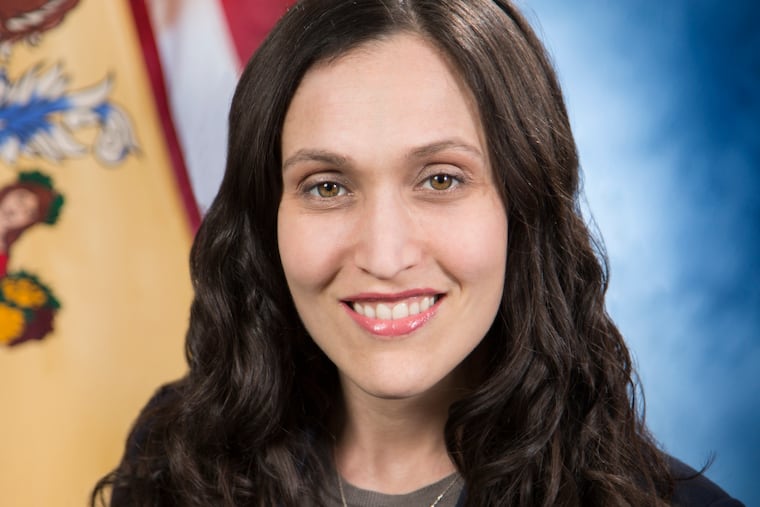New Jersey Gov. Phil Murphy will nominate civil rights attorney for state Supreme Court
This will mark Murphy’s second nomination to the state Supreme Court since his 2017 election.

Rachel Wainer Apter, who leads the New Jersey Division on Civil Rights and once clerked for Supreme Court Justice Ruth Bader Ginsburg, will be Gov. Phil Murphy’s choice to fill a soon-to-be-empty seat on the state Supreme Court.
Murphy is expected to announce Monday that he will nominate her for the seat of Justice Jaynee LaVecchia, who plans to retire at the end of August.
Wainer Apter, 40, is a former attorney for the American Civil Liberties Union who served as a law clerk for Ginsburg a decade ago. A Democrat, she worked on Murphy’s transition team after his 2017 election. As director of the Division on Civil Rights, she heads an agency tasked with enforcing anti-discrimination laws related to housing, employment, family leave and other matters.
Once Wainer Apter’s appointment is approved by the New Jersey State Bar Association, Murphy can formally nominate her. If confirmed by the state Senate, she would shift the court left; LaVecchia is the sole independent justice amid three Republicans and three Democrats.
This will mark Murphy’s second such judicial nomination, after naming 40-year-old Fabiana Pierre-Louis to the state Supreme Court last summer.
» READ MORE: New Jersey’s Supreme Court nominee credits her success to humble roots as a first-generation Haitian American
Wainer Apter has had a role in several high-profile civil rights cases, including a 2018 multistate lawsuit that unsuccessfully sought to end legal protections for undocumented immigrants who were brought to the U.S. as children. She led the New Jersey team that intervened in the case, traveling to Texas to argue against it.
“I spoke about the irreparable harm people would suffer,” she said in an interview Sunday. “The law is not just a subject to be debated, it’s something that profoundly impacts people’s lives.”
In 2019, she chaired a committee tasked with addressing a rise in hate crimes and bias incidents among the state’s students and young adults. The task force eventually recommended a series of education-based strategies like requiring anti-bias training for educators and school employees, encouraging school districts to designate a chief equity officer, and requiring anti-bias policies in colleges and universities.
She spent a year clerking for Ginsburg in Washington, an experience she said led to a friendship with the late Supreme Court justice. In a column published by The Star-Ledger after Ginsburg’s death in September, Wainer Apter wrote, “Let us all honor the justice’s legacy by being steadfast in our commitment to seeing the unfinished work of this country — fundamentally respecting the equal dignity of all people — through to completion.”